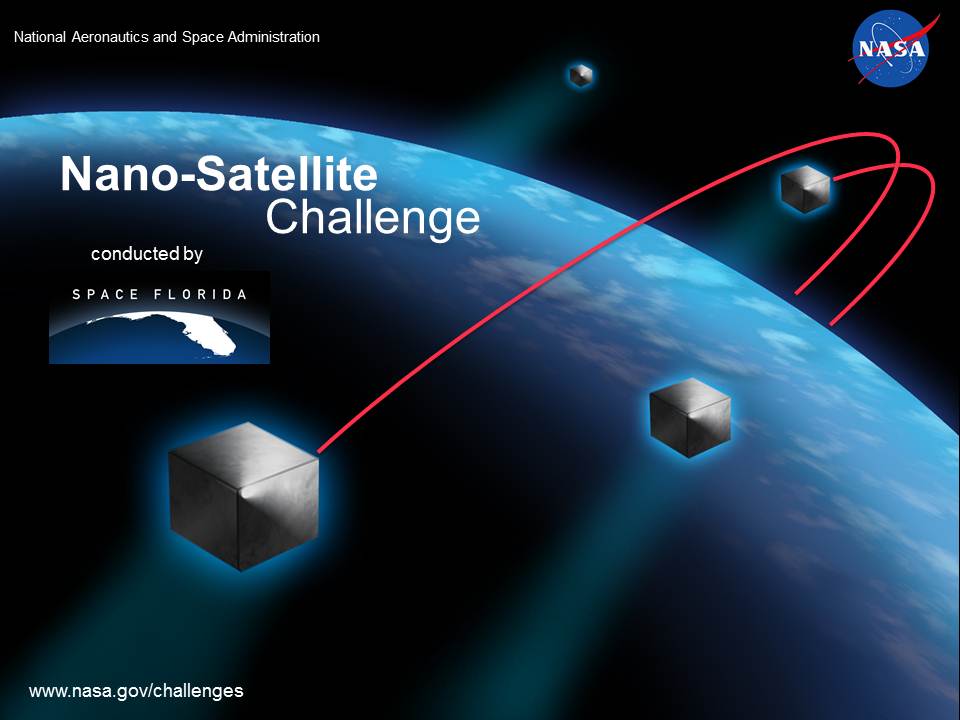NASA Scrubs Nano-Sat Launch Challenge
The continually disappointing state of very small launch vehicle development was dealt another blow November 18th, when NASA notified Space Florida that it would be terminating its role in funding the Nan0-Sat Launch Challenge.
The challenge, which was never officially approved, and only progressed as far as choosing a logo and developing a set of draft rules, would have paid a $1.5 million prize to a winning team which was able to launch a payload between 1 and 10 kilograms into low Earth orbit, and then repeat the accomplishment within 7 days. The proposed rules were fairly wide open; with land, sea and air launches, including from high altitude balloons all permissible. The nano-sat payload was not required to be functional, but that certainly would have been nice touch.
The overall purpose behind the challenge was to promote development in the smallest category of the launch industry, and hopefully provide an economically viable alternative to secondary manifesting for the field of nan0-satellities which is exploding in popularity.
The cancellation, as covered in NewSpaceJournal was apparently due to a number of factors, including the lack of available teams considered capable of meeting the challenge, and somewhat more disturbingly, the presence of two ongoing military programs; the U.S. Army’s SWORDS and DARPA’s ALASA, each of which is also aimed at developing a small launch capability of approximately $1 million per launch. Given the perpetual high cost and intractable nature of military systems, it seems exceedingly unlikely that either of those programs would make a meaningful contribution to advancing the overall purposes of the Nan0-Satellite Challenge, even if they meet their own respective goals.
In assessing the cancelled program, it may be that either the bar was set too high, or the purse was set too low, or both. Possibly, NASA may come back and sub-divide the components of what would be an orbital launch vehicle into more achievable segments; or alternatively another sponsoring body might pick up pieces and try again. In addition to supporting the increasingly important role of very small satellites, the type of small-scale development work performed to field a functional micro sized launch vehicle has the potential to produce much larger payoffs in terms of developing experience and fostering innovative approaches to an overall launch industry which is far too expensive, and far too slow to change.



Let’s do it anyway.